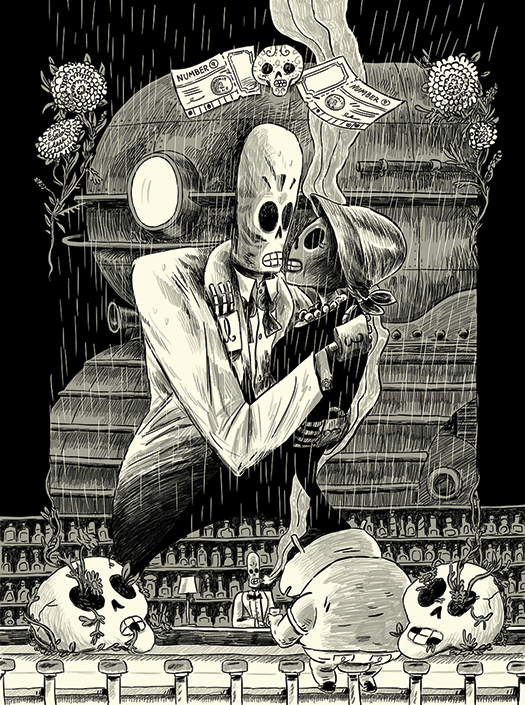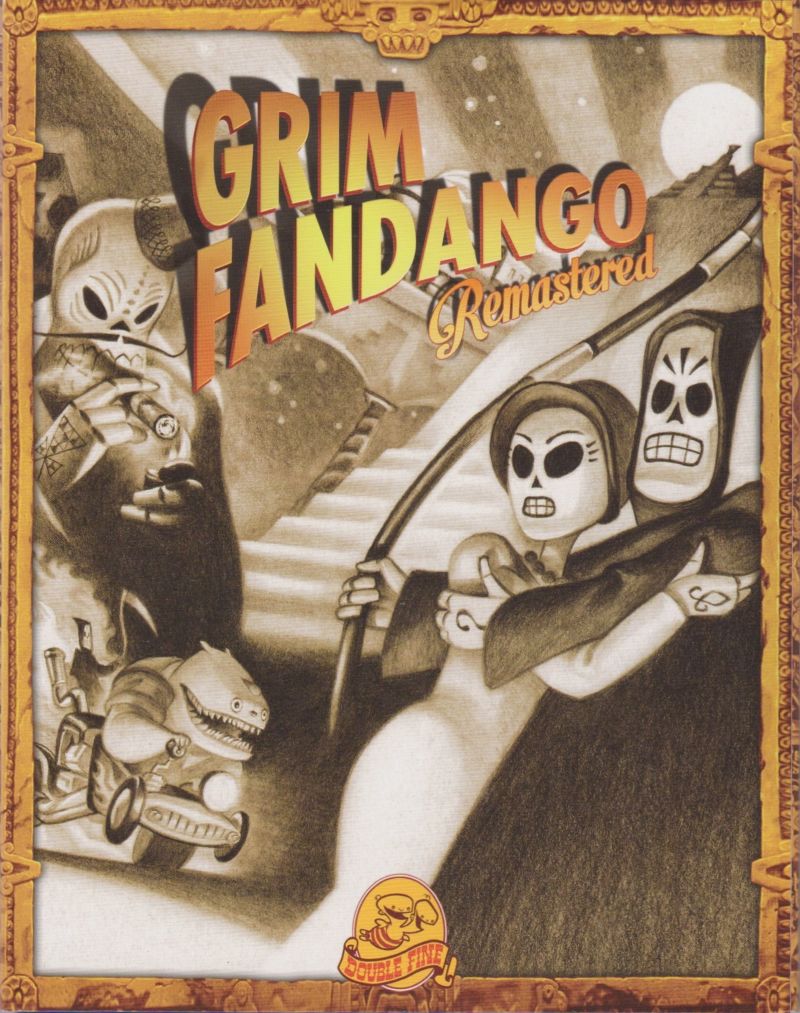

Players who are accustomed to spontaneous puzzle-solving or trying everything in their inventory on one object before moving onto another are condemned to an excessive amount of waiting for Manny to swap things out, unless they change their playstyle entirely to accommodate the stiff, systematic approach to exploration that the game seems to encourage. While something is equipped, all interactions with your environment are performed via that item-so if you have a can opener in hand, for example, you cease getting useful feedback about your surroundings if your surroundings can’t be opened like a can. And yes, I know exactly what that sounds like.

Grim fandango remastered raspberri pi full#
You have to wait for Manny to physically reach into his jacket, wait for him to pull out whatever item the game decides you should see first, wait for him to put that item back into his jacket and pull out whatever’s next in line (repeating until you locate what you need), and then wait for him to “equip” the item. In the same time that it takes Manny to find and extend his collapsible scythe, Guybrush Threepwood could’ve whipped out his rubber chicken and waved it at an entire room full of people. To use an item, the player reaches into the stylish jacket of protagonist Manny Calavera, the Land of the Dead’s premier second-rate travel agent. The game operates on some of the worst game design principles the genre has to offer, yet nostalgia and complacency have elevated this game to heights that no other genre would tolerate. Let’s put aside the novel premise, the charming Latin flavor, the film noir vibe, the art deco aesthetic, the memorable characters, the competent voice acting, the fully orchestrated soundtrack, the clever humor, the additional perks the remastered version has to offer, and the fact that the first few hours of the game were magical for me. We accept “adventure game logic” as a genre standard, as though anything stupid is acceptable if done repeatedly. We kick ourselves for overlooking obscure hints and trivial clues that only make sense after the fact. When a puzzle is too complicated, we blame ourselves for not thinking about it hard enough. Whereas other genres are readily held responsible for poor planning and terrible execution, adventure games have a history of making willing scapegoats of the players. Grim Fandango Remastered (PC, 2015 original unremastered release, 1998)Īdventure games, particularly older ones, all too often get a pass for lousy design. “I can’t believe I preordered this.” –Nathaniel Hoover

“…the greatest adventure game ever made.” –GamesBeat “The epitomy of what an adventure game should be.” –jarrodj “Don’t be surprised if you’re sad when it’s over.” –GameSpot “The entire adventure genre owes a debt to Grim Fandango.” –PS Nation “This is a game destined for every gamer’s all time favorite list.” –IGN “…still stands as a classic of the genre…” –Good Old Games “One of the most acclaimed adventure games of all time…” –Steam


 0 kommentar(er)
0 kommentar(er)
